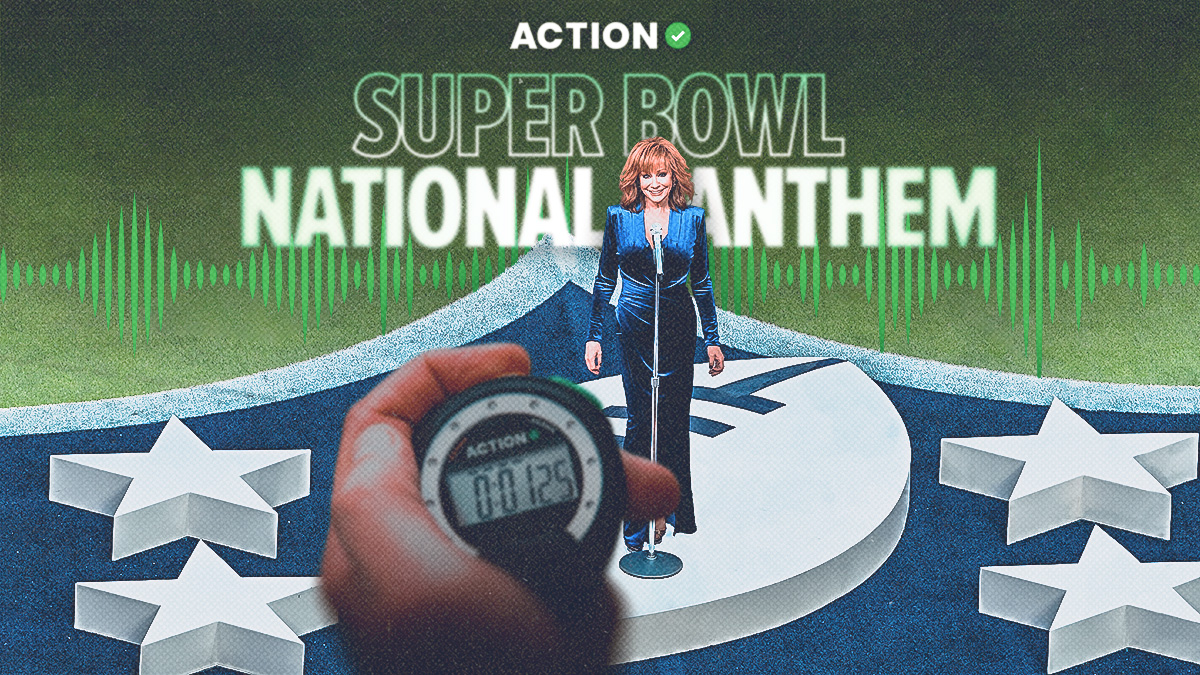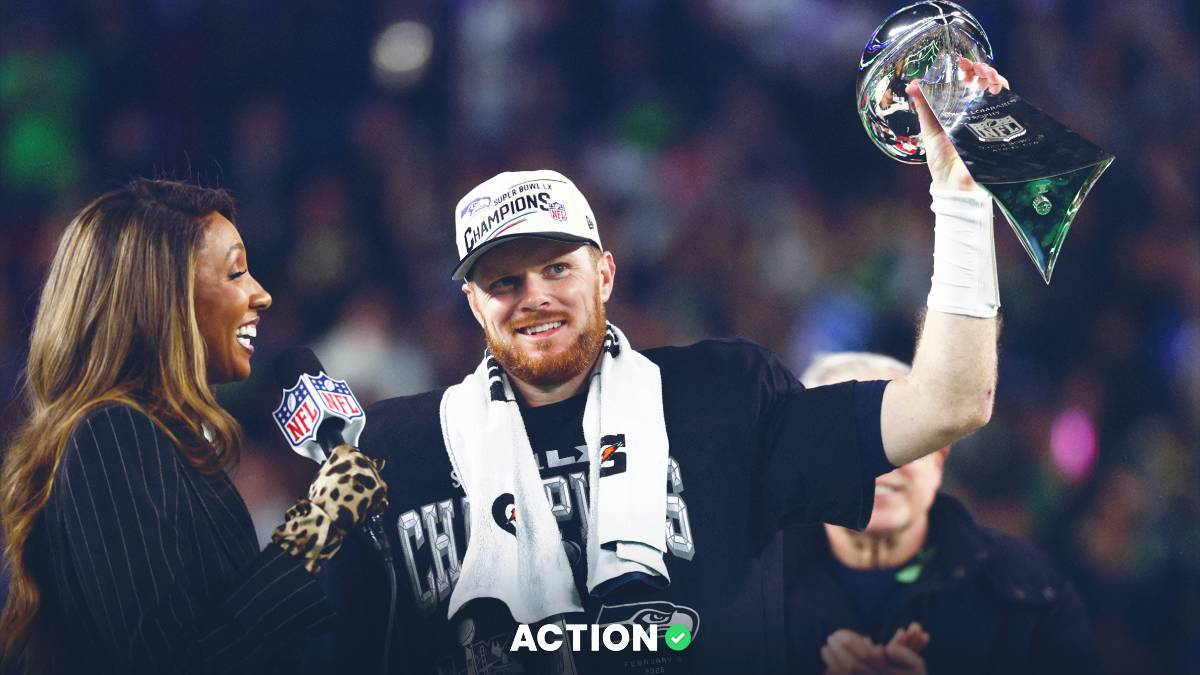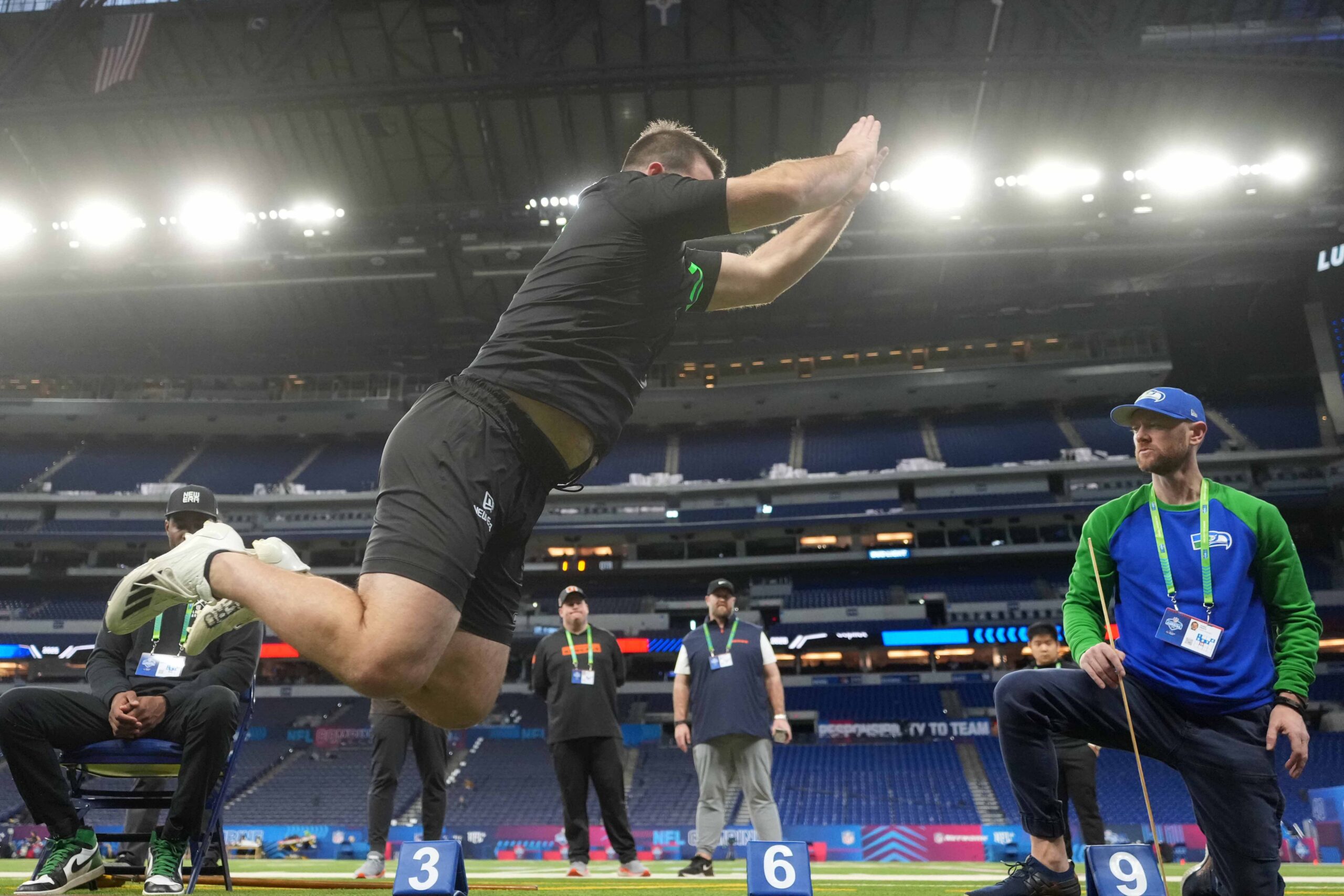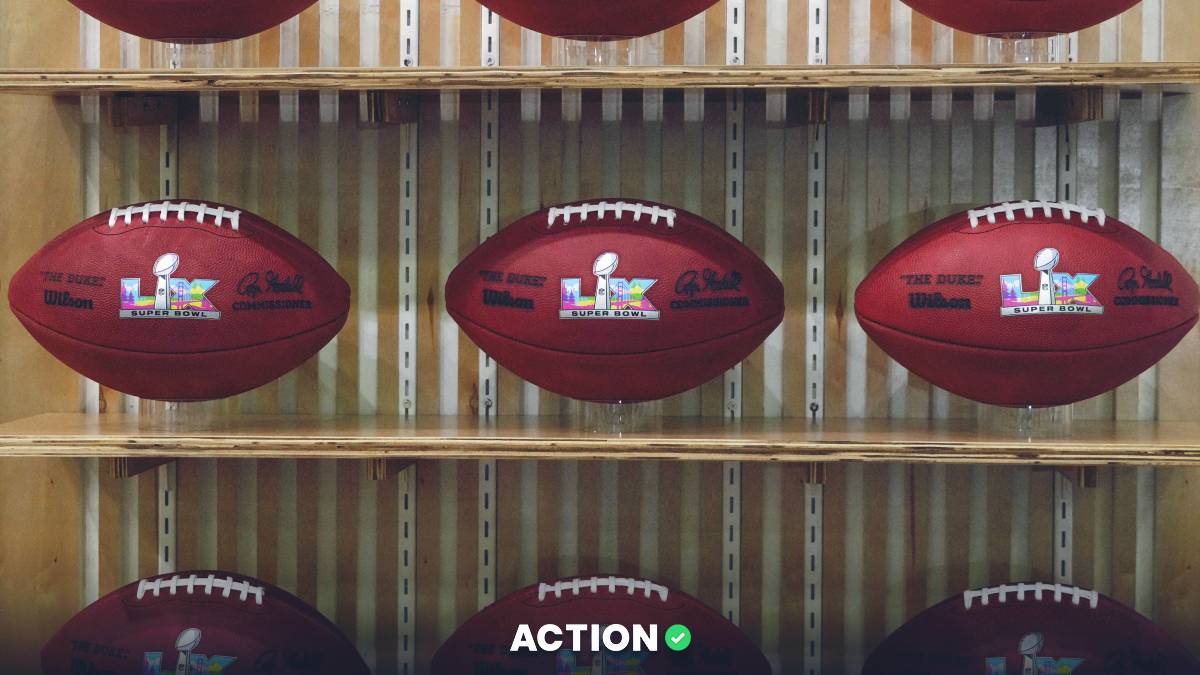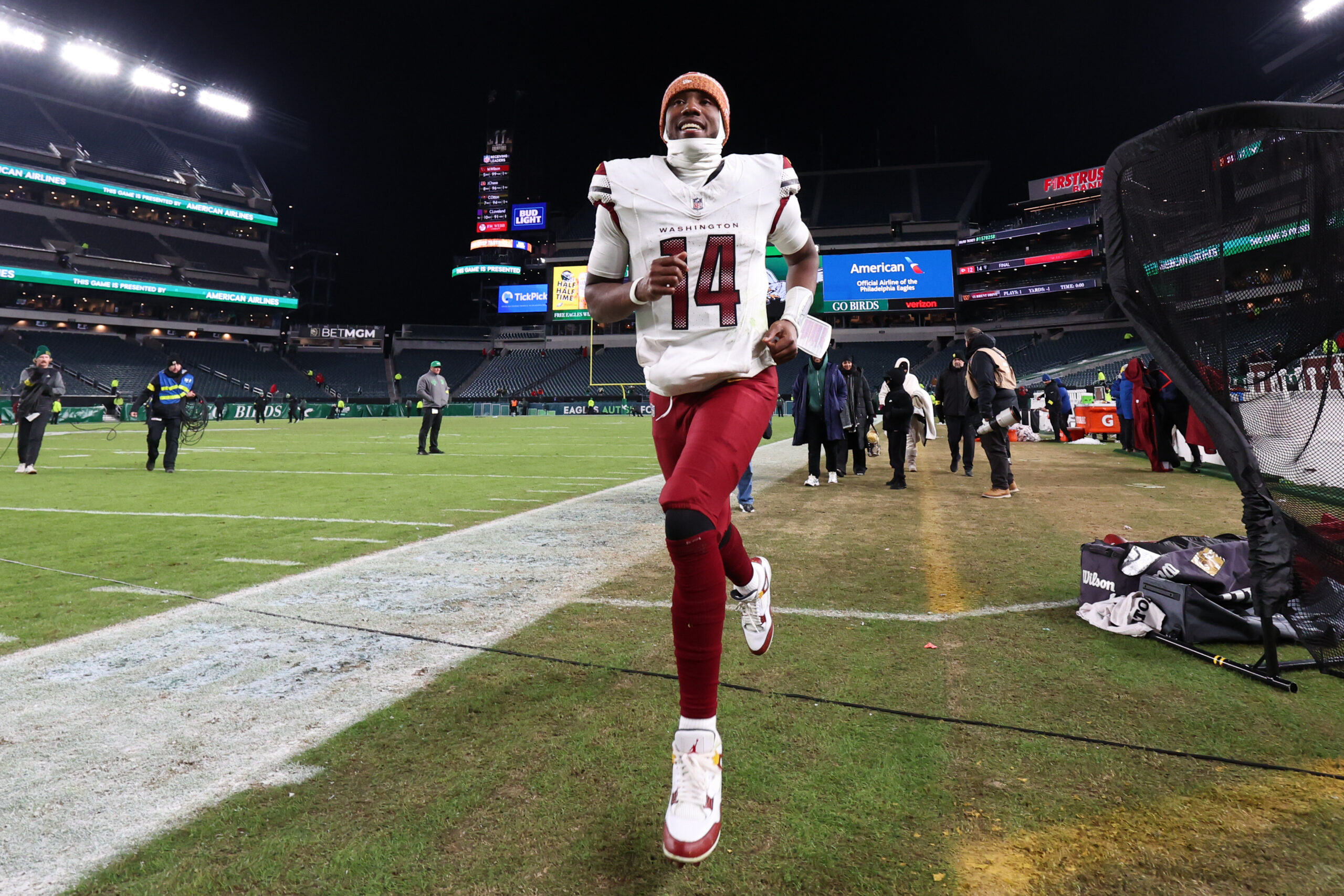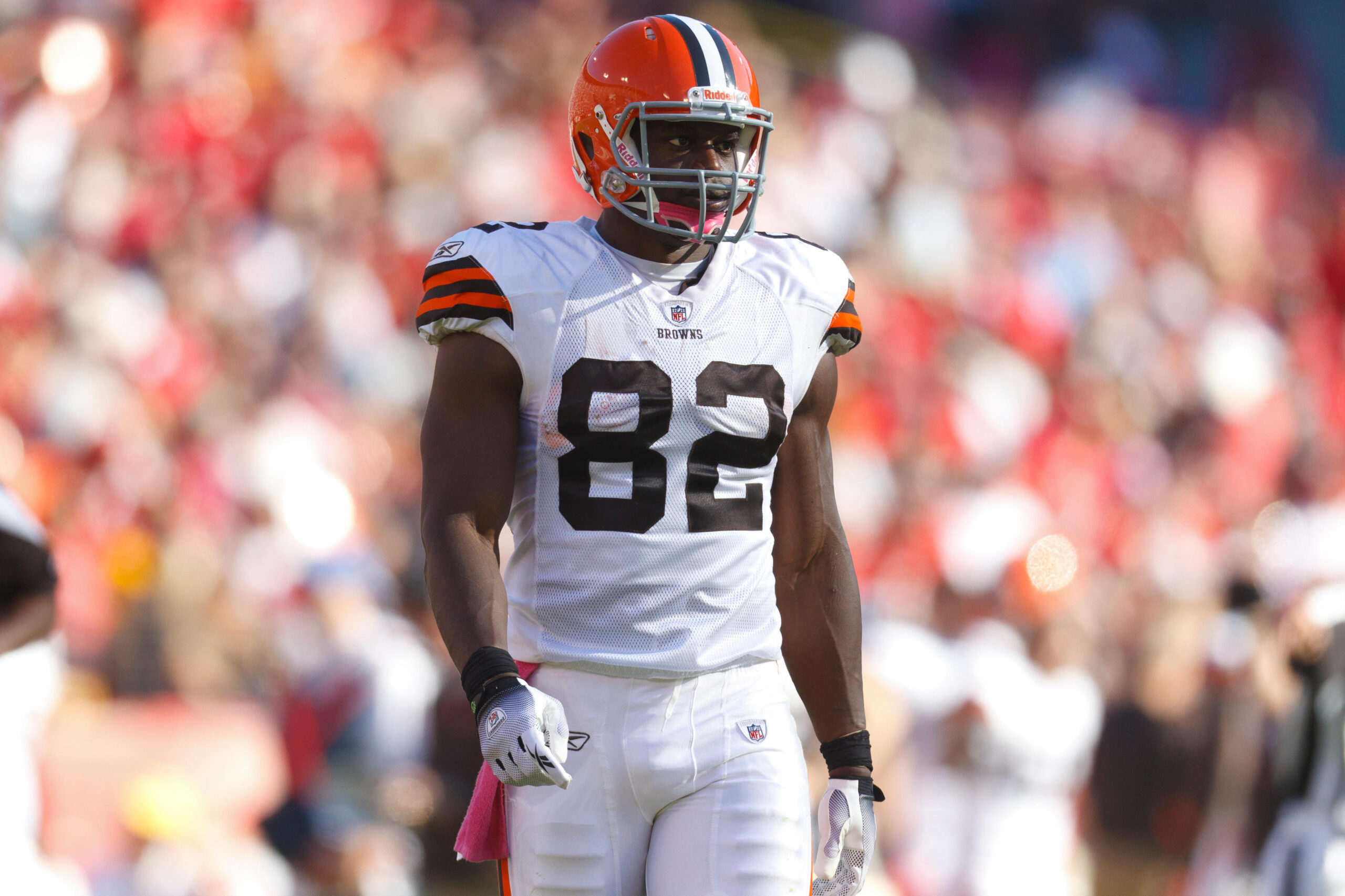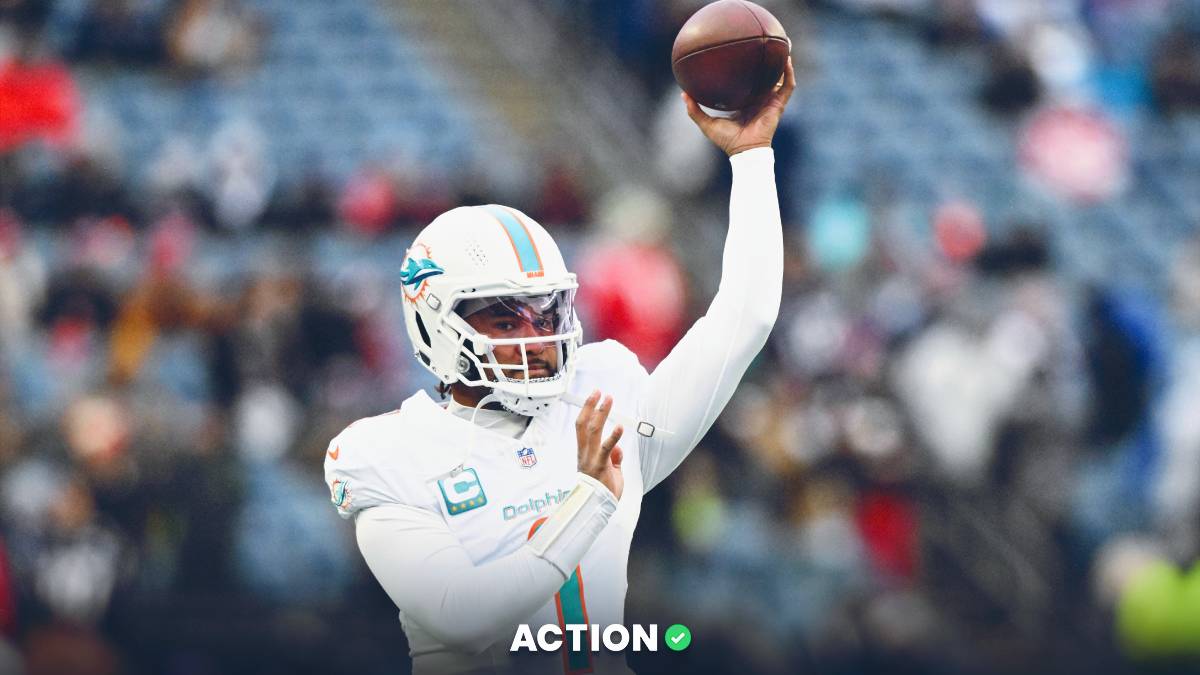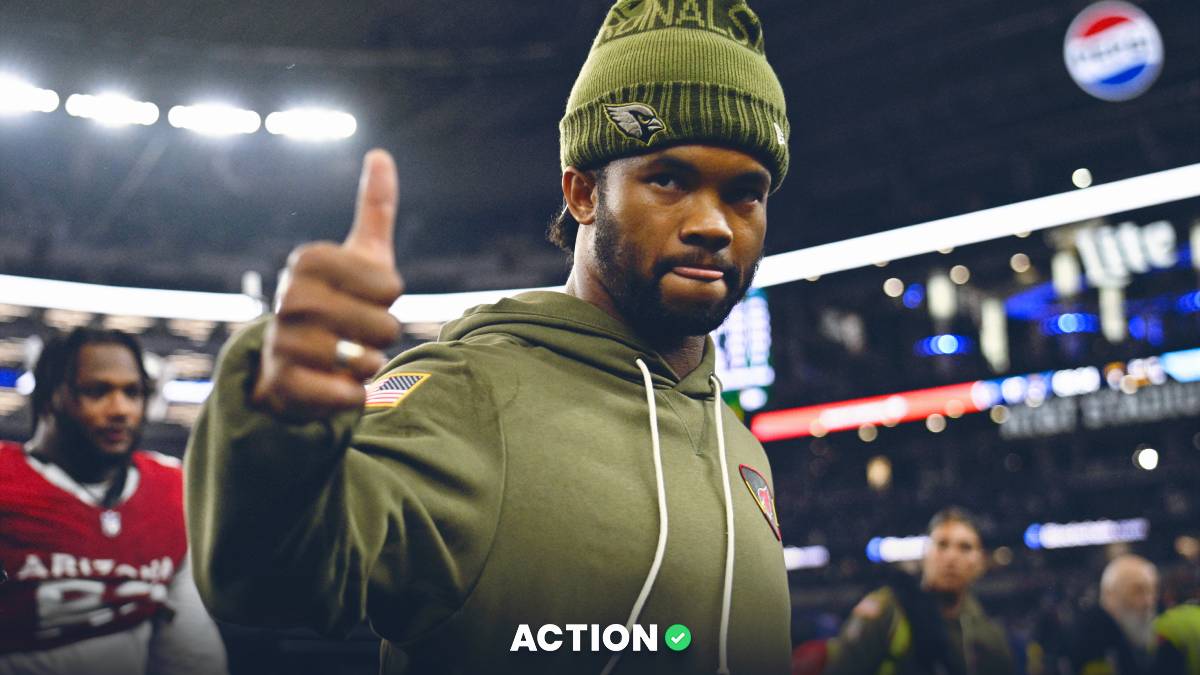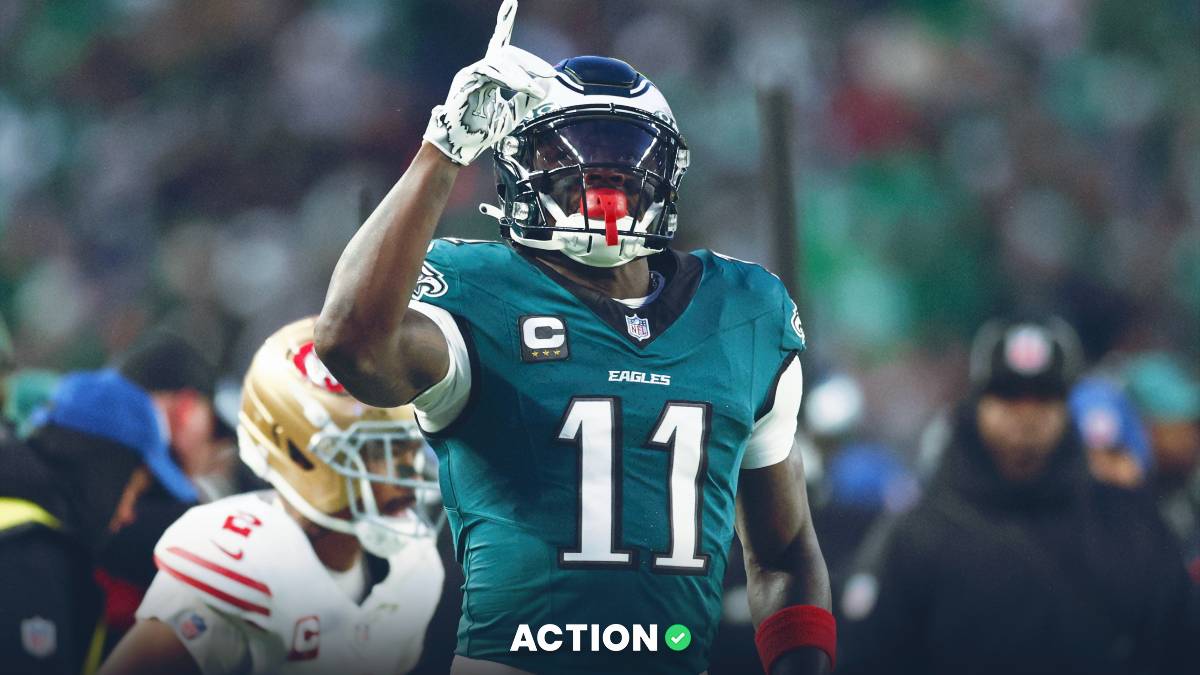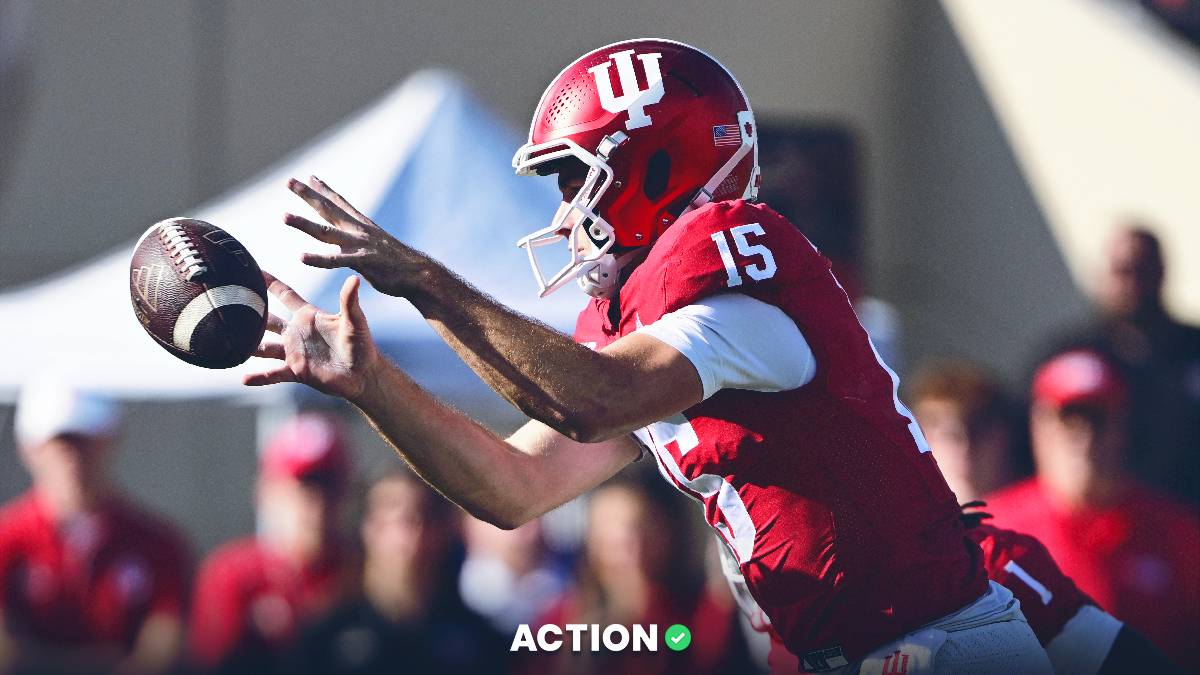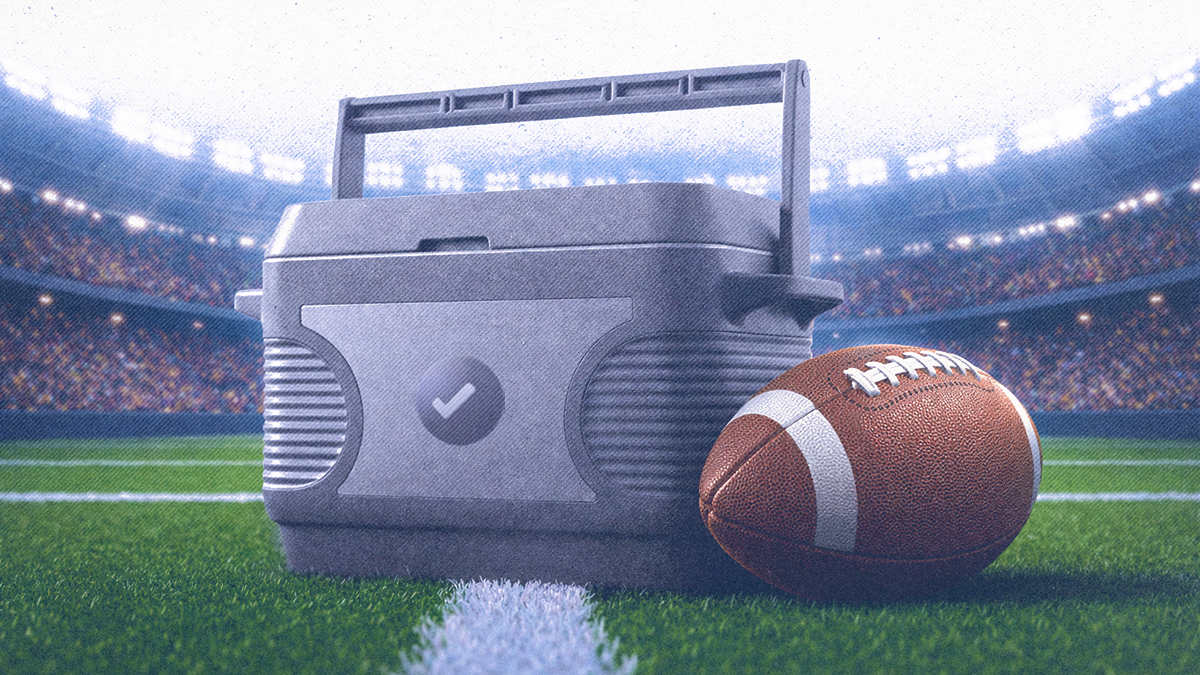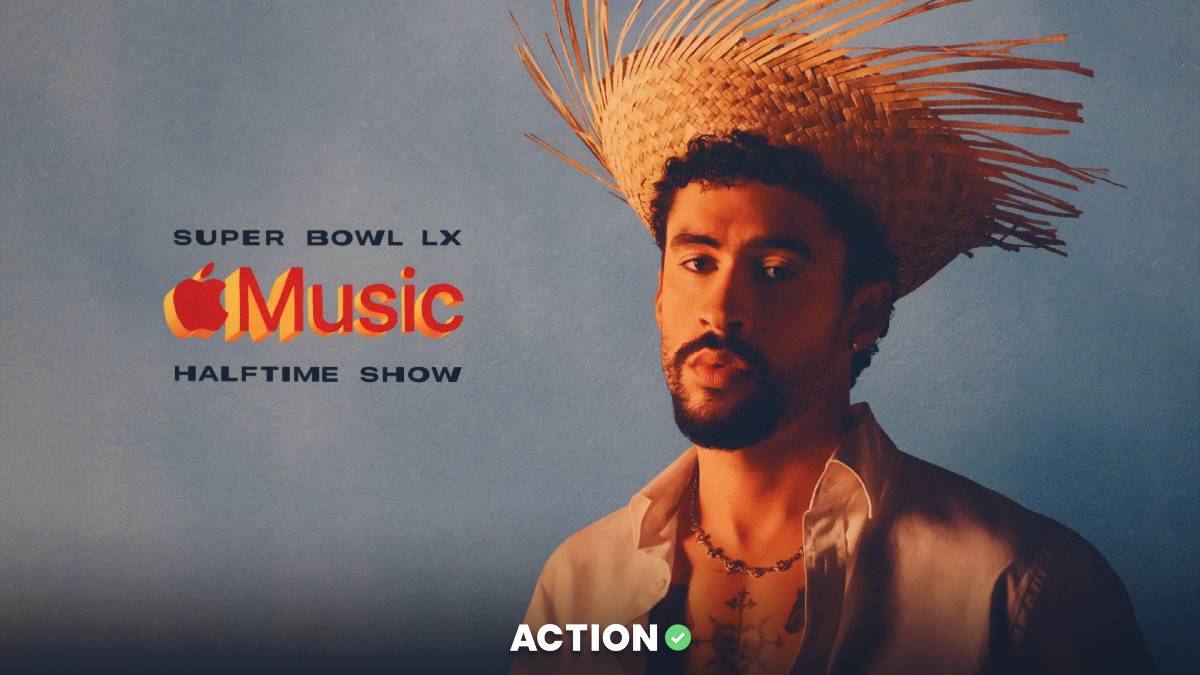Super Bowl National Anthem Odds: Reba McEntire Result on Over/Under
| Over 90.5 | +102 |
|---|---|
| Under 90.5 | -128 |
Update: Reba McEntire's second brave had her unofficially clock in at 95 seconds.
Country music legend Reba McEntire is set to sing the National Anthem before the Super Bowl between the Kansas City Chiefs and the San Francisco 49ers.
And as with every year, a popular prop bet associated with the Super Bowl is betting on how long the national anthem rendition will last.
No major American sportsbook will posts odds on this prop, but the market is available at FanDuel in Ontario (Canada), where the line has been set at 90.5 seconds.
Continue reading for a full breakdown of McEntire's history and a pick on whether she will go over or under the listed time when singing the national anthem prior to the 2024 Super Bowl.
Super Bowl Props: Gatorade Color
Super Bowl National Anthem Through the Years
| Year | Performer | Time (s) |
|---|---|---|
| 2023 | Chris Stapleton | 121 |
| 2022 | Mickey Guyton | 111 |
| 2021 | Jazmine Sullivan & Eric Church | 137 |
| 2020 | Demi Lovato | 109 |
| 2019 | Gladys Knight | 121 |
| 2018 | P!nk | 112 |
| 2017 | Luke Bryan | 124 |
| 2016 | Lady Gaga | 143 |
| 2015 | Idina Menzel | 124 |
| 2014 | Renee Fleming | 123 |
| 2013 | Alicia Keys | 156 |
| 2012 | Kelly Clarkson | 94 |
| 2011 | Christina Aguilera | 114 |
| 2010 | Carrie Underwood | 107 |
| 2009 | Jennifer Hudson | 130 |
| 2008 | Jordin Sparks | 114 |
What to Expect from Reba McEntire
Let's call a spade a spade: Reba McEntire yodels. No, she isn't a warbler; she is a yodeler. It is McEntire's most uniquely defining vocal characteristic, and it is highly relevant to handicapping the length of her national anthem performance.
What is Yodeling?
Yodeling is a vocal technique that largely eschews passagio (blended/mixed voice) and instead emphasizes acute, highly flexible shifts in intonation between "chest voice" and "head voice." This technique is distinctive from vibrato — a method of manipulating vocal cord compression in order to create pulsar variance in pitch. It is also distinctive from "warbling" — a method of manipulating vocal timbre and palatal posture in order to create variance in pitch.
Instead, yodeling is characterized by the manipulation of vocal registration itself. If executed by an amateur, yodeling sounds like one's voice is breaking (think back to your preteen years when your voice "cracks.")
Why Yodeling is Relevant to the National Anthem Length Handicap
Yodeling requires palatal ("of or referring to the soft palate — muscles anterior to the 'roof' of the mouth") flexibility in order to abruptly-but-seamlessly alter registration from chest-to-head voice (or vice versa).
Yodeling also requires both breath support and expiratory ("of or referring to expiration — the expulsion of air via the mouth") control, so that a vocalist may compress and decompress the vocal cords gracefully when breaking registers.
One method to maintain (1) palatal flexibility and (2) expiratory control is to avoid legato vocalization in general, but especially of vowels in particular. Rather, it is commonplace for a yodeler to use consonant sounds as the foundation for their chord compression and to coordinate their registration breaks on vowel sounds instead.
In order to pull this off and not sound like one's voice is "cracking," one must execute this maneuver very, very rapidly. This, in turn, requires a song composition that allows for extremely rapid movement within the divisions of a given beat or bar. Furthermore, not only must the rhythm of the composition be accommodating divisionally, but it is preferable that the composition be higher tempo.
If a singer attempts to yodel to a slow song, it may — in effect — come across to the listener like poor vocal control. But increase the beats per minute (bpm) by several orders of magnitude, and suddenly yodeling sounds like … yodeling.
This is why Reba McEntire has a storied history of relatively quick national anthem times.
For extra value betting the Super Bowl, use our FanDuel Promo Code and get bonus bets as a new user welcome.
Reba McEntire's Anthem History
At a Rodeo Championship in Oklahoma City in 1974, McEntire clocked a 72-second national anthem performance. In 1985, during pregame for Game 1 of the World Series, McEntire managed a staggering anthem performance length of 66 seconds.
These anthem times are extremely short.
As McEntire has aged, her times have become slightly more reasonable. In 1997, she performed the national anthem in 83 seconds. In 1999, her anthem was 90 seconds long. Then in 2017, McEntire clocked 81 seconds.
These times are still very short, but you'll also note that they are highly variable. Given the same performer and the same vocal style, why would her times from 1997 (83 seconds) and 1999 (90 seconds) be so different? Or, is a seven-second difference not that big a deal in the first place?
The reason why McEntire's anthem performances have gotten longer over time (remember: 66 seconds in 1985; 90 seconds in 1999) is due to the maturity of her vocal apparatus.
As she has aged — a double-edged sword — she has gained further mastery of her voice while simultaneously losing some of her vocal athleticism. Put differently: McEntire's physical ability may be reduced, but her control may be enhanced.
This combination of factors means that she has the liberty to still perform songs the way she likes — yodeling and all — but may prefer to do so at slower tempos for the sake of her breath support.
The Real Reason for McEntire's Variability: Her Rhythm is Very Poor
Notwithstanding the effects of the aging process, there remains a more important reason why McEntire's national anthem times are so highly variable: She has exclusively performed the national anthem unaccompanied by musicians. She has sung a capella.
I don't intend to overly disparage McEntire's musicianship, but the following must be stated forthrightly: McEntire's rhythm is exceedingly poor.
When analyzing her past anthem performances, this fact is glaringly obvious. McEntire's internal rhythm is highly inconsistent — even within the context of a single performance — and her understanding of where she is relative to the bar is even worse.
When McEntire sings unaccompanied, the arrangement lacks rhythmic consistency. This is the No. 1 reason why her anthem times have been all over the place.
This is also partly why I believe wholeheartedly that Super Bowl organizers will insist that McEntire be accompanied by either a choir, drumline, orchestra or full band. And in so doing, collaboration with other musicians requires someone to keep time. That someone may, in fact, be a click track — a metronome sent to a performer's in-ear monitor in order to help them maintain rhythm.
When an accompanist or many accompanists have supported vocalists in performing the national anthem at the Super Bowl, the tempo has largely remained between 64 bpm and 70 bpm. Of the 10 accompanied performances in the last 16 years, only two (P!nk, 2018; Jordin Sparks, 2008) have featured tempos exceeding 70 bpm.
Super Bowl National Anthem Tempo with Accompaniment
| Year | Performer | Accompaniment | Beats | BPM |
|---|---|---|---|---|
| 2023 | Chris Stapleton | Guitar | 130 | 64 |
| 2022 | Mickey Guyton | Piano, Choir | 126 | 68 |
| 2021 | Jazmine Sullivan & Eric Church | Full Band | 147 | 64 |
| 2020 | Demi Lovato | Orchestra | 121 | 67 |
| 2019 | Gladys Knight | Orchestra | 140 | 69 |
| 2018 | P!nk | Orchestra | 141 | 76 |
| 2016 | Lady Gaga | Piano | 137 | 57 |
| 2012 | Kelly Clarkson | Drumline, Choir | 109 | 70 |
| 2009 | Jennifer Hudson | Orchestra | 137 | 63 |
| 2008 | Jordin Sparks | Orchestra | 156 | 82 |
If, indeed, McEntire is joined by an ensemble or accompanist, I would not be shocked if the tempo is higher than average. I would not even be surprised if the tempo is staunchly in the 75-80 bpm range. Given McEntire's vocal style, this more aggressive tempo is perfectly reasonable.
However, tempo alone is not powerful enough to turn a 120-second national anthem performance into a 90-second performance. Instead, fast tempo must be combined with a second condition — the latter of which is even more imperative: 3/4 meter.
The Most Important Variable in Any National Anthem Handicap: Meter
Modern renditions of the national anthem tend to be indulgent. The song itself is written in 3/4 time — and some performers still choose to perform it this way — but it has become more common to perform the song in 4/4.
This shift from 3/4 to 4/4 time is principally designed to enable more freedom for the vocalist to be expressive. When adhering more strictly to a 3/4 time signature, there are fewer beats to emphasize or deemphasize. As a direct result, the meter tends to be more rigid, and vocal performances tend to "stick to the bar." This limits singers' ability to improvise, add melodic flourishes or even just catch their breath before an upcoming belt.
In the last 16 years, only two Super Bowl performers have chosen to sing the national anthem in 3/4 time: Carrie Underwood (2010) and Kelly Clarkson (2012).
- Carrie Underwood's performance spanned 116 total beats at 65 beats per minute (bpm), resulting in a total performance time of 107 seconds.
- Kelly Clarkson's performance spanned 109 total beats at 70 bpm, resulting in a total performance time of 94 seconds.
These two Super Bowl national anthem performances are the shortest in duration among all performances in the last 16 years. And the reason why they are so short may be specifically attributed to the decision to perform the national anthem in 3/4 time.
This singular decision drastically shortens the total beats in the arrangement. Whereas all other Super Bowl national anthem performers collectively average 136 beats per performance, Underwood and Clarkson only achieved 116 and 109, respectively.
In order for McEntire to approach a 90-second performance, she must also perform in 3/4 time. I have done the math: It is very, very challenging to perform a 4/4 rendition of the national anthem fast enough to crack 90 seconds and yet not feel uncomfortably rushed.
Why I Believe McEntire Will Opt for 4/4 Time
The following is an opinion but an informed one: McEntire must sing unaccompanied (which I do not believe is likely, given Super Bowl organizers' history with the national anthem), or she must perform the national anthem in 3/4 time in order to sing the anthem in under 90 seconds.
The latter — performing in 3/4 — is a challenging proposition for a vocalist who has demonstrated repeatedly via numerous previous anthem performances that her rhythmic awareness is poor. To perform the national anthem in 3/4 requires feeling the anthem in 3/4; frankly, I do not trust that McEntire can do this. Moreover, I'm more ardent in my assertion that she likely would not want to.
McEntire's charm is in her smile — not in her voice. Her vocal timbre is nice enough, but it is not special. She was likely chosen to sing the national anthem due to the combination of her name recognition, popularity and ability to engage with the audience.
This lattermost component — McEntire's ability to engage — is paramount. It is a supportive premise underlying my insistence that she will be accompanied. McEntire is at her best when she is smiling with both her face and eyes; when she is at liberty to engage directly with cameras or with the audience in front of her.
In order to perform this freely, she must be liberated from rhythmic responsibility. And to maximally leverage the charm of McEntire's performance, it would be ideal to perform the anthem in 4/4 with at least a few harmonists if not a full choir.
How to Bet Reba McEntire's Anthem Prop
It is undeniable that McEntire's history singing the national anthem suggests that under 90 seconds is a wise bet. But, I contend that a performance at the Super Bowl is not comparable to a performance at a 1974 Oklahoma City Rodeo Championship, nor even comparable to the 1985 World Series.
The Super Bowl is an event — a spectacle, even. This extends to the singing of the national anthem, which increasingly has featured more choreography and showmanship in the last decade than in the prior decade.
Would I be shocked if Reba McEntire performs unaccompanied? Frankly, yes.
I believe McEntire would most prefer that outcome, but I equally believe that Super Bowl organizers likely will not abide it. When evaluating McEntire solely on the basis of her vocal gravitas, she comes up short. She needs support.
That support will come via accompaniment, which will necessarily limit her tempo (even if it remains uptempo relative to previous Super Bowl performances) and will encourage 4/4 meter as opposed to 3/4.
This combination of factors almost necessarily demands a national anthem performance between 100 and 110 seconds, even if the performance is uptempo or even if the performance features fewer total beats/bars than expected.
The only true comparable performer on record who serves as the model for a 90-second performance is Kelly Clarkson (2012, 94 seconds). She performed the fewest total beats on record (109), opted for the third-highest tempo on record (70 bpm) and strictly adhered to 3/4 time, while supported by a drumline to enforce that cadence.
… and she still exceeded 90 seconds, even despite possessing world-class breath support (which McEntire does not have).
Even despite the numerous variables that make McEntire's anthem performance difficult to handicap, the handful of inductions we can make all lead to a singular conclusion: Bet the Over.


